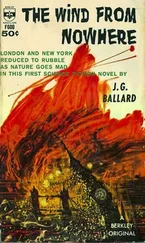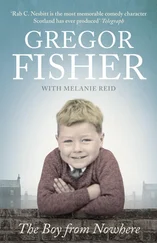Oates had just started to eat when Warren Rivette stepped into the restaurant. He took a seat opposite and said, “I tried your house, but you and Nantan weren’t there, so I figured you two had gone out for breakfast.” He looked around him. “Where is your lady wife?”
“She’s gone, Warren. Darlene McWilliams has her.”
He answered the question that formed on the gambler’s face by recounting what had transpired the previous evening. “They left this,” he said, and passed Rivette the note.
After the man read, Oates chewed on a piece of steak, swallowed, then said, “I went out last night, looking for Nantan.”
“You didn’t see anything?”
“Only snow.”
“Why didn’t you tell me, Eddie? I would have come with you.”
“She’s my wife, Warren, my responsibility. I had it to do.”
“She’s a citizen of Heartbreak. That also makes her my responsibility.” Rivette waited for an answer, got none, and asked, his voice edged, “Has Darlene found a way to get in touch with you?”
“Not yet.”
“I wish you had asked for my help, Eddie.”
“I will . . . next time.”
The waitress poured coffee for Rivette and the gambler lit his morning cigar.
“This may come as a surprise to you, Eddie, but I like you and Nantan and I guess everybody in town does. Your welfare is our concern.”
Oates dipped a piece of bread into his egg yolk and popped it in his mouth. “I already owe you, Warren. I haven’t forgotten what you did for me back in Alma.”
Rivette smiled. “Eddie, I did that to prove to myself that I wasn’t completely worthless. That I could show even that small modicum of compassion for another human being came as a complete surprise to me.”
“When I look back on it, you made me feel less worthless. Not much, but a little.”
“Well, it’s water under the bridge. Our immediate problem is getting Nantan back home safe and sound.”
“I have an idea about that,” Oates said. “You’re going to find what I’m about to tell you hard to believe, but the proof is back at my house.”
“Ah, Eddie, you’re always such a man of mystery. Now, tell away.”
And Oates did.
When he was finished talking, Rivette looked around him, making sure no one was eavesdropping, whistled through his teeth and said, “Twenty thousand is a heap of money, and it’s a lot to pay for a woman, any woman.”
“I’ll offer Darlene the five thousand and all of it if I have to. I don’t care about the money, but I do care about Nantan.” He sat back and let the other Miss Schmidt pour them coffee. When the girl was gone, Oates said, “Of course, maybe you think I should find the gold’s true owner.”
Rivette laughed. “Yeah, you go to a bank and ask, ‘Say, did you lose twenty thousand dollars in gold about, oh, ten, fifteen years ago?’ What’s the answer going to be? ‘Damned right we did, and thanks for returning it. Here’s a dollar. Go buy yourself a cup of coffee.’
“The railroad? Same thing.
“Hell, Eddie, even the Army would jump at the chance of free money. ‘Yeah, that’s one of our stolen payrolls. Now just leave the gold right there and light a shuck afore we throw you in the guardhouse.’ ”
The gambler shook his head. “Finders keepers, Eddie. That’s one of Rivette’s laws, never to be broken.”
Despite the worry riding him, Oates had to smile. “You’ve got larceny in your soul, Warren, just like me.”
“Damned right.”
“I guess all we can do now is wait until Darlene makes her next move, huh?”
“My guess is it will be soon. That dying puncher wasn’t lying to us, no. If the Circle-T is still after her like he said, she’ll want to get out of the territory as soon as possible.”
Rivette rose to his feet. “My advice is to head home. After Darlene contacts you, we’ll go from there.” A slightly puzzled expression crossed the gambler’s face. “I never knew you loved Nantan this much.”
“Neither did I, until yesterday.”
“You could buy the whole Lipan tribe for twenty thousand dollars.”
Oates smiled. “I only want one of them.”
Rivette nodded, smiling. “Keep in touch, Eddie.”
Chapter 39
Oates, feeling cold and empty inside, returned to a bleak, empty house.
He lit a fire in the parlor and sat in his chair. As the room warmed he grew drowsy. Soon his chin dropped to his chest and, utterly exhausted from his cold night in the Gila, he slept.
Outside, morning faded into early afternoon with no change in the light, though the day grew colder and frost laced windows all over town.
People came and went in the street, and at twelve noon there was a commotion in Hermann the German’s place when a miner suddenly took a header into his beef and onion soup. The man was dead by the time other diners got to him, and it was later agreed by all present that the whiskey had finally done for him.
At one in the afternoon a tight V of geese flew across the sky above town, though no one noticed, and at two a woman named Martha, the wife of a miner from Cornwall, England, badly burned the palm of her left hand on a hot iron.
Then, at three, or very shortly thereafter, a man knocked on Eddie Oates’ door.
Oates was awake instantly. He rose, slipped his gun into a pocket and stepped into the hallway. “Who’s there?” he asked.
“You Eddie Oates?”
“That’s me.”
“I have a letter for you. It’s cold out here, open up.” Oates opened the door a crack, his hand on the butt of the Colt. A miner, as big and shaggy as a grizzly, had a scrap of paper in his extended hand. He looked like a man whose patience was rapidly wearing thin.
“Feller asked me to give you this. He paid me two dollars to deliver it safe. He said you’d know who it’s from.”
The miner shoved the paper into Oates’ hand and waved before turning away. “Cold day, huh?”
Oates took the paper inside and read it at the window.
Wait until nightfall. Then head north toward Cuchillo station.
Watch for our fire and bring the money.
No funny business or fancy moves.
CLEM HAS SHARPENED HIS SQUAW STICKER.
The note was written in the same female hand as the previous one, scribbled in some haste by Darlene McWilliams. The woman was evil and she would not hesitate to carry out her threat against Nantan.
It was still a couple of hours until dark, but it was a ten-mile ride to the stage station. Impatient to be going, Oates dressed, then shouldered the saddlebags, staggering a little under their weight as he headed for the door.
He had not begged Rivette for help before, but he would now. His wife was in terrible danger and his pride had no more value than a rooster crowing on a dung heap.
Oates walked through the icy day to the Riverboat. When he stepped inside it felt like he was coming home.
The saloon was warmed by a cherry red, potbellied stove and the thick air was made fragrant with the smells of bourbon, spilled beer, sawdust and cigars. Oil lamps cast a golden glow on the brass rails of the mahogany bar, burned with radiant fire inside every amber bottle, their soft halos of smoky light beckoning to him, welcoming him home like a prodigal son.
For a few moments, Oates stood transfixed, like a mortal in the presence of a deity. He touched the tip of his tongue to his top lip and his eyes glazed, his throat working.
A man who enters a room and stands deathly still, staring at something only he can see, will attract attention. Conversation among the miners died away to a few whispers, and all eyes turned to Oates and the heavy burden he carried on his right shoulder.
Rivette sat at a table with three other men, a stack of chips in front of him. Like the others, he looked at Oates. Then he turned and called out to the bartender, “Adam, come play this hand, then cash me out.”
Читать дальше












